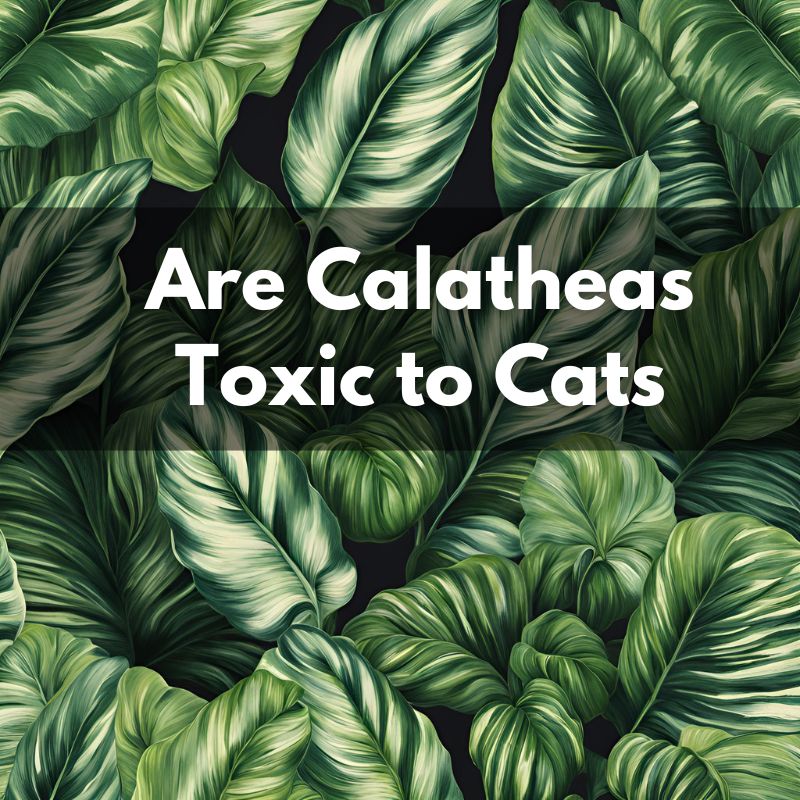
Are Calatheas Toxic to Cats? What Pet Owners Need to Know
Calatheas, known for their vibrant foliage and intricate patterns, are popular houseplants among plant enthusiasts. They add beauty and greenery to indoor spaces, but if you’re a cat owner, you might be concerned about the safety of these plants for your feline friends. This blog post addresses whether Calatheas are toxic to cats, explores potential risks, and offers tips for pet owners to ensure a safe environment.
What Are Calatheas?
Calatheas, part of the Marantaceae family, are tropical plants renowned for their striking leaves, which often feature vivid colors and patterns. Common species include the Calathea orbifolia, Calathea lancifolia, and Calathea roseopicta. These plants are appreciated for their decorative appeal and their ability to thrive in indoor environments with indirect light.
Toxicity of Calatheas to Cats
1. Non-Toxic Status: Calatheas are generally considered non-toxic to cats according to the ASPCA (American Society for the Prevention of Cruelty to Animals). This means that, in most cases, exposure to Calatheas does not pose a serious health risk to cats. Unlike some plants, which contain compounds that can be harmful or toxic, Calatheas do not have known toxins that affect cats adversely.
2. Mild Irritations: While Calatheas are not classified as toxic, they can cause mild gastrointestinal upset if ingested in large quantities. This might include symptoms like drooling, vomiting, or diarrhea. Such reactions are relatively rare and usually occur only if a cat consumes a significant amount of the plant material.
Potential Risks and Symptoms
1. Gastrointestinal Issues: If a cat eats a large amount of Calathea leaves, it might experience mild gastrointestinal issues such as vomiting or diarrhea. The symptoms are generally mild and self-limiting, but monitoring your cat’s condition is important.
2. Allergic Reactions: Though rare, some cats might have individual sensitivities or allergic reactions to certain plants, including Calatheas. If you notice unusual behavior or signs of discomfort after your cat comes into contact with the plant, it’s advisable to consult a veterinarian.
3. Ingestion of Plant Material: Cats that are particularly curious or prone to chewing on plants might ingest Calathea leaves. While this is not typically dangerous, it’s always best to discourage this behavior to prevent any potential issues.
Tips for Cat Owners
1. Plant Placement: To minimize the risk of your cat ingesting Calathea leaves, place the plant in areas that are less accessible to your pet. Hanging planters or elevated shelves can help keep plants out of your cat’s reach.
2. Provide Alternatives: Offer safe and enticing alternatives for your cat’s natural chewing instincts. Cat grass or catnip can serve as suitable substitutes and help keep your feline friend away from houseplants.
3. Monitor Plant Health: Regularly check the health and cleanliness of your Calathea plants. Ensure that they are free from pests or mold, as these issues could potentially cause additional health problems if ingested by your cat.
4. Veterinary Consultation: If your cat shows signs of distress or unusual symptoms after contact with a Calathea plant, consult your veterinarian for advice. They can provide guidance on managing any potential issues and ensure your cat’s well-being.
Conclusion
Calatheas are generally safe for cats and are not classified as toxic. However, as with any plant, it’s wise to monitor your cat’s behavior and health, especially if they have a tendency to chew on plants. By taking precautions such as placing plants out of reach and providing safe alternatives for your cat’s chewing needs, you can enjoy the beauty of Calatheas without compromising your pet’s safety.
For more information on pet-friendly plants and keeping your home safe for your furry friends, visit News Gutter. This resource offers valuable insights and tips on various topics related to pet care and home safety.
